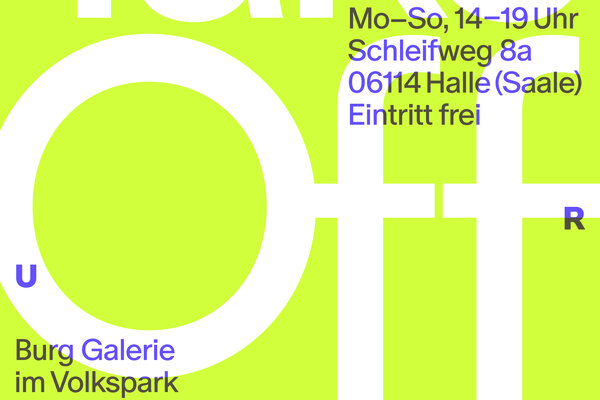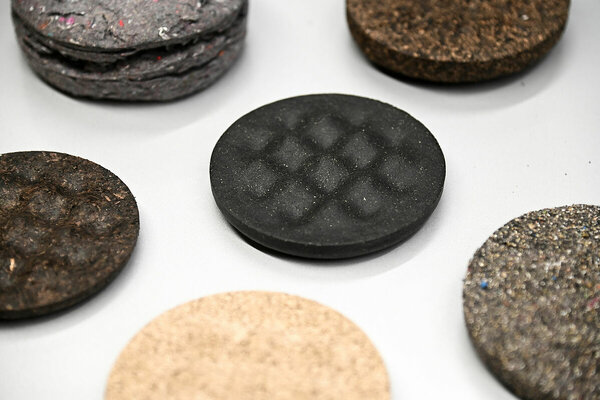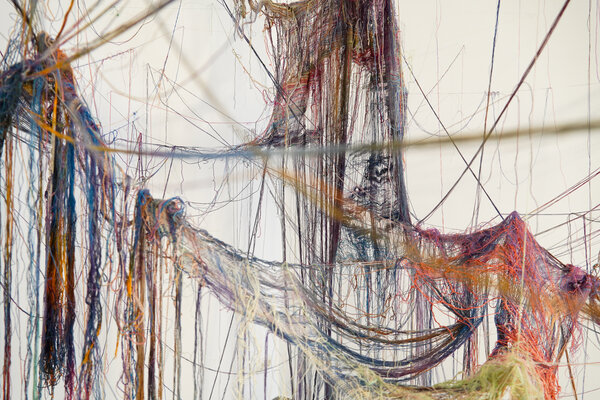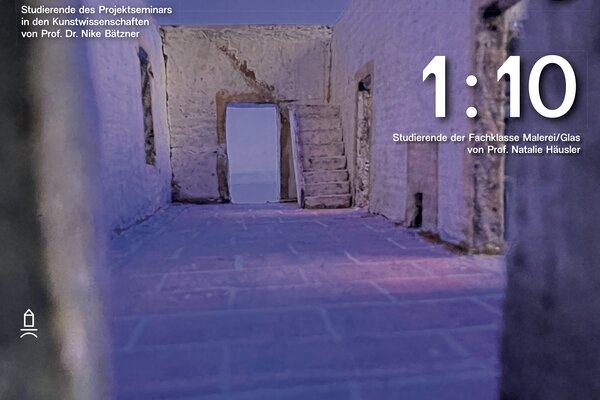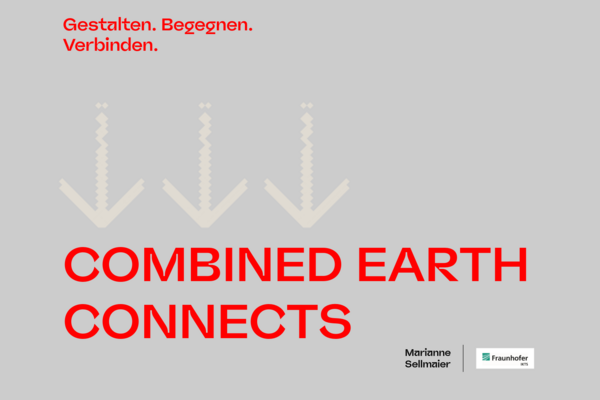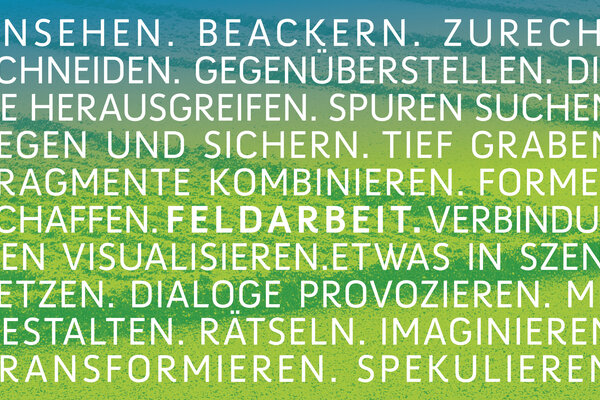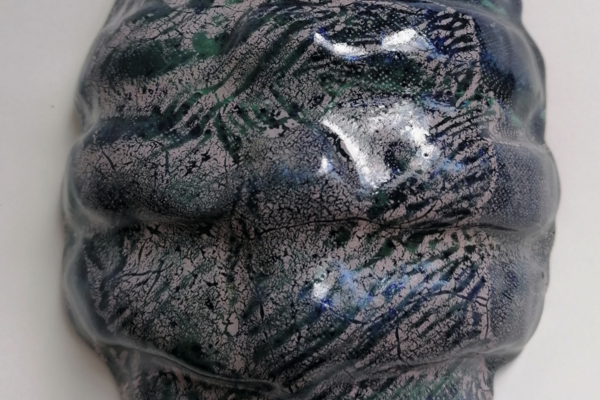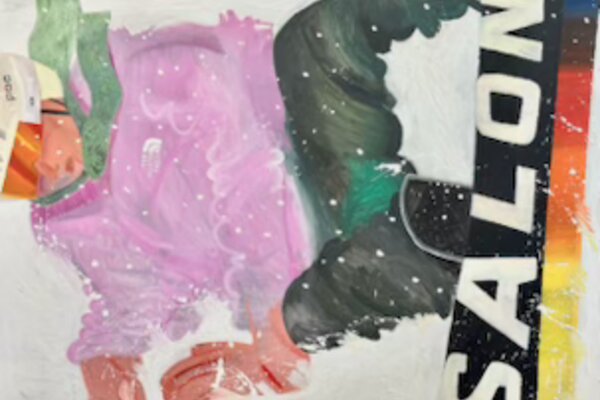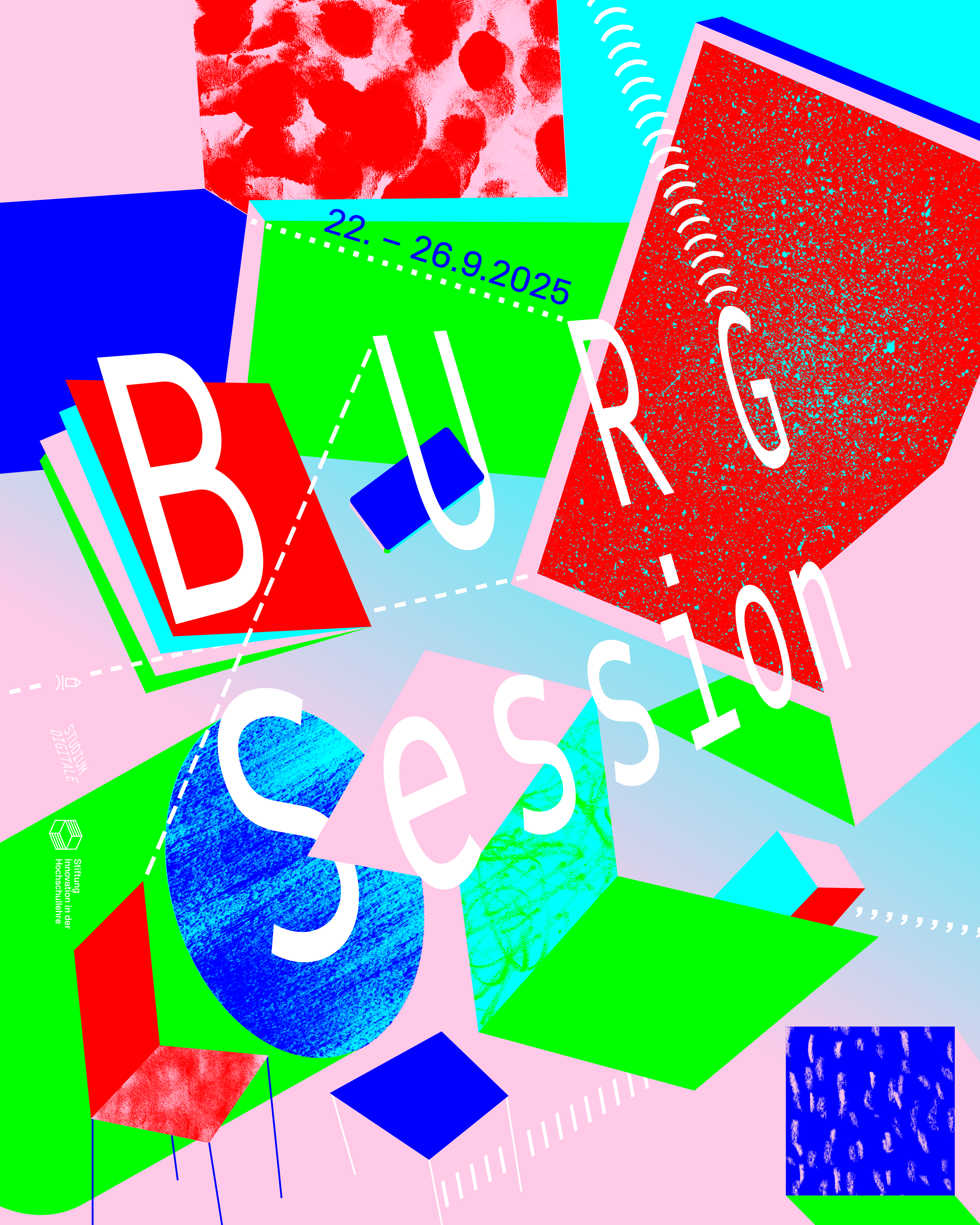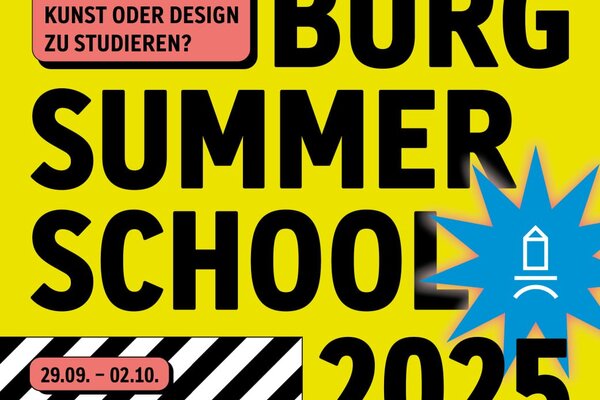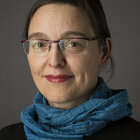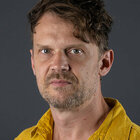Art mediation formats
In addition to the conception and realisation of exhibitions, Burg Gallery im Volkspark sees its task as communicating the exhibition ideas and the contemporary art and design positions on display to a wide audience in a variety of ways.
To this end, an extensive accompanying artistic programme is being developed that provides various ways of accessing contemporary art. For example, aspects of artistic work will be examined in discussions with the artists in front of their works, contexts of creation will be illuminated, work contexts will be scrutinised and thematic explorations will be presented. The programme is constantly expanding its formats, also by taking into account the wishes and ideas of the exhibitors and visitors.
The following three focal points I. Actions by artists, II. Dialogue-based art education and III. Discursive events have crystallised and proven themselves in recent years of art education practice.
I. Actions by artists
The concept of an artistic work is constantly changing. Artists often not only work with different media, but also engage with other areas of art such as theatre, literature, music, entertainment and popular culture as well as social and scientific issues.
Artistic works such as performances, but also appearances such as lectures or readings, expand the spectrum of encounters between actors and audiences. In these forums, questions about the conditions of existence of artists and designers, the role of artistic networks and joint actions are also discussed.
- Performances
- Lectures by students and guest artists
- readings
- workshops
- Actions/Interventions
II Dialogue-based art education
In addition to the protagonists, visitors also have their say. We summarise various approaches under the heading of ‘dialogue-based art education’. Artist talks and guided tours are based more on the professional expertise of the mediators. In the art education programme, on the other hand, ideas for participatory forms of exchange are developed and implemented in the exhibitions together with the visitors. This also includes insights into teaching.
- Artist talks before the works
- Guided tours (with curators, professors, etc.)
- Guided tours with students (every Sunday at 3 pm)
- Insights into teaching
- Experimental formats
III Discursive events
Once or twice a year, we organise larger discursive events on relevant issues in art and design. These can be scientific-artistic symposia or panel discussions with representatives from various artistic fields. In this context, we are particularly interested in the type of presentation and exchange of ideas, which can be realised in the form of a controversy or as a creative short form such as a slam or Pecha Kucha.
- Symposia
- (Podium) discussions
- Lectures / keynote speeches
- Audio and film screenings with discussion
- Catalogue presentations
IV. Digital events
Due to the coronavirus pandemic, Burg Galerie has also tried out and developed new art education formats. Due to the changed framework conditions, established formats such as artist talks via livestream were transferred to digital. This gave rise to new questions. At the same time, other avenues were explored and initial ideas were realised that incorporate the digital.
New questions have arisen and we are looking for answers to them:
- What does it take to make a sensory experience possible when it means being there without being physically present?
- What does it mean to no longer stand directly in front of the artwork?
- How can forms of dialogue be implemented in digital space?
- How can artistic processes and material handling be conveyed in digital workshops?
![[Translate to English:] Eröffnung, Take Off 2024](https://www.burg-halle.de/home/_processed_/c/1/csm_01_BURG_Takeoff_Austellung_2024_Michel_Klehm_LQ_205_1b0d246265.jpg)
![[Translate to English:] Ausstellungsansicht, in relation to](https://www.burg-halle.de/home/_processed_/4/2/csm_02_BURG-Galerie-in_relation_to-2022-Foto_Max_Mendez-LQ-_14__2ac9acd411.jpg)
![[Translate to English:] Performance zur Eröffnung](https://www.burg-halle.de/home/_processed_/3/1/csm_03_x_Dr_Jule_Reuter_Er%C3%B6ffnung_Performance_Suah_Im__76865c6d44.jpg)
![[Translate to English:] Ausstellungsansicht, Do You Dream at All?](https://www.burg-halle.de/home/_processed_/0/8/csm_04_2023-BURG-TfuerTraum-Ausstellung-Foto_Max_Mendez-LQ-_05__ee59b3c3cd.jpg)
![[Translate to English:] Ausstellungsansicht, Pro oder Kontra](https://www.burg-halle.de/home/_processed_/3/f/csm__X5A0083_5d6b930271.jpg)
![[Translate to English:] Eröffnung, graduiert ≈ präsentiert 2023](https://www.burg-halle.de/home/_processed_/a/7/csm_06_BURG-graduiert-praesentiert-Eroeffnung-2023-Foto_Max_Mendez-LQ-_01__517917c310.jpg)
![[Translate to English:] Eröffnung, Big Thing](https://www.burg-halle.de/home/_processed_/6/2/csm_07_Burg_BigThing_Ero%E2%95%A0%C3%AAffnung_Foto_Michel-Klehm_15_LQ_7a1b3f4591.jpg)
![[Translate to English:] Eröffnung, Navigating Strangeness](https://www.burg-halle.de/home/_processed_/9/0/csm_08_BURG_F_fuer_Fremd_Eroeffnung_2024_Foto_Sven_Bergelt_12_LQ_cf4df9c7d6.jpg)
